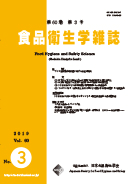
Food Hygiene and Safety Science
Scope & Guideline
Elevating Hygiene Practices through Science
Introduction
Aims and Scopes
- Food Safety Assessment:
The journal emphasizes rigorous evaluations of food safety, including the detection and quantification of harmful substances such as toxins, pesticides, and microbial contaminants. - Analytical Method Development:
A significant focus is on developing and validating analytical methods (e.g., LC-MS/MS, HPLC) for detecting residues and contaminants in food products, ensuring reliable and rapid testing. - Microbial Risk Analysis:
Research on microbial pathogens and their impact on food safety is prevalent, including studies on the ecology of foodborne bacteria and the development of rapid detection methods. - Public Health Implications:
The journal explores the broader implications of food safety research on public health, including risk communication and consumer awareness regarding food hygiene. - Regulatory Science and Standards:
It addresses the regulatory frameworks governing food safety and the evolution of standards, providing insights into how policies can be effectively implemented.
Trending and Emerging
- Emerging Contaminants in Food:
There is a rising focus on detecting new contaminants, such as pharmaceuticals and heavy metals, in food products, highlighting the need for updated analytical methods to address contemporary food safety challenges. - Foodborne Toxins and Pathogen Detection:
Recent studies increasingly emphasize the detection and analysis of specific foodborne toxins, such as ciguatoxins and tetrodotoxins, reflecting growing concerns about seafood safety and associated health risks. - Pesticide Residue Analysis:
The examination of pesticide residues in various food products is trending, driven by heightened awareness and regulatory scrutiny regarding chemical contaminants in the food supply. - Health Foods and Dietary Supplements:
There is a notable increase in research concerning health foods and dietary supplements, particularly regarding their safety, efficacy, and potential interactions with pharmaceuticals. - Technological Innovations in Food Safety Testing:
Emerging themes include the development of rapid and innovative testing methods, such as molecular detection assays and advanced analytical techniques, to enhance food safety monitoring.
Declining or Waning
- Historical Food Safety Issues:
There seems to be a decline in research focused on historical food safety issues, such as older methods of food preservation or long-established practices, as newer technologies and methods take precedence. - General Foodborne Illness Reporting:
Publications specifically reporting on general foodborne illnesses without a novel analytical or methodological contribution have decreased, indicating a shift towards more specific studies with actionable insights. - Traditional Food Safety Practices:
Research related to traditional food safety practices is less prominent, possibly as modern techniques and scientific advancements offer more effective solutions to food safety challenges.
Similar Journals
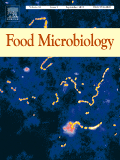
FOOD MICROBIOLOGY
Fostering knowledge that nourishes the food industry.FOOD MICROBIOLOGY is a premier journal, published by Academic Press Ltd - Elsevier Science Ltd, dedicated to advancing the field of food science and microbiology. With an impressive impact factor and recognition as a Q1 journal in Food Science and a Q2 journal in Microbiology, it holds a significant position in the scientific community, emphasizing research that explores microbial phenomena in food products. Established in 1984, the journal continues to thrive with converged coverage until 2025, making it an essential resource for researchers, professionals, and students aiming to deepen their understanding of food-related microbiological issues. While it operates under traditional access options, the journal is highly regarded for its rigorous peer-review process and impactful contributions to agricultural and biological sciences, ranking #26 in Food Science and #22 in Microbiology according to Scopus. Researchers are encouraged to submit their findings that impact food safety, quality, and preservation, fostering a collaborative environment that generates knowledge pivotal for the food industry and public health.

Journal of Food Safety and Food Quality-Archiv fur Lebensmittelhygiene
Advancing the Standards of Food Safety and Quality.The Journal of Food Safety and Food Quality - Archiv für Lebensmittelhygiene is a crucial publication in the realms of food safety, quality assurance, and hygiene, published by M H SCHAPER GMBH CO KG in Germany. As a respected journal with editions dating back to 1959, it has played an integral role in disseminating research, reviews, and case studies that impact policy and practice within the food science community. Despite being classified in the Q4 category across various domains such as Food Science, Health, Toxicology, and Microbiology as of 2023, its contributions continue to foster critical discussions, innovations, and advancements in understanding food safety standards and practices. The journal does not currently offer open access, a decision that may influence the dissemination of knowledge among researchers and practitioners. However, its archival value and historical insights remain significant for those invested in the scientific and regulatory landscapes of food quality and safety.

Brazilian Journal of Analytical Chemistry
Bridging Gaps in South American Analytical ScienceBrazilian Journal of Analytical Chemistry, published by VISAO FOKKA COMMUNICATION AGENCY, serves as a vital platform for those engaged in the field of analytical chemistry, especially within the Latin American context. With an ISSN of 2179-3425 and an E-ISSN of 2179-3433, this journal aims to promote high-quality research and advancements in analytical methodologies, instrumentation, and applications spanning from 2010 to the present. Although it currently holds a Q4 rank in Analytical Chemistry by Scopus and is placed at the 24th percentile, its commitment to open access publishing provides invaluable opportunities for widespread dissemination of knowledge, catering to researchers, professionals, and students alike. The journal's editorial board comprises emerging and established experts aiming to bridge gaps in analytical chemistry research, particularly in a Brazilian and broader South American context. Situated in São Paulo, Brazil, the journal's role in fostering innovation and collaboration in analytical techniques makes it an essential resource for the academic community.
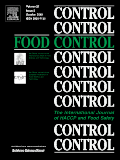
FOOD CONTROL
Advancing food safety through innovative research.FOOD CONTROL, published by Elsevier Science Ltd, stands at the forefront of research in the fields of Food Science and Biotechnology, holding a prestigious Q1 ranking in both categories as of 2023. With an impact factor reflecting its influential role in the scientific community, this journal is dedicated to advancing the understanding and control of food safety, quality, and regulations from 1990 to its projected convergence in 2025. Food Control provides a platform for innovative research and critical reviews that address the pressing global challenges in food safety, sustainability, and technological advancements in the industry. Researchers, professionals, and students are encouraged to engage with its content, fostering a deeper understanding of the intersection between food science and biotechnological advancements, all while benefiting from the extensive reach of its Scopus rankings, which place it in the top 5th percentile of its respective fields.
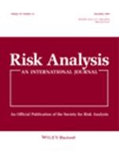
RISK ANALYSIS
Pioneering Research at the Intersection of Risk and SafetyRISK ANALYSIS is a premier journal published by Wiley, focusing on the critical intersection of safety, risk, reliability, and quality within the fields of engineering and physiology. With a strong standing reflected in its Q1 category ranking in Safety, Risk, Reliability and Quality and Q2 in Physiology (medical), this journal is a vital resource for researchers, professionals, and students eager to stay informed on the latest methodologies, theories, and applications surrounding risk assessment and management. Since its inception in 1981, RISK ANALYSIS has been instrumental in shaping the discourse in its fields, garnering a robust reputation verified by its high rankings on Scopus, where it is positioned in the 85th percentile in Safety and the 77th percentile in Medicine. Though it does not currently offer Open Access options, the journal remains essential for those committed to advancing their understanding of risks associated with complex systems. For more insights, RISK ANALYSIS is available to readers throughout its converged years extending to 2024, solidifying its role as a foundational journal for impactful research.

Food Quality and Safety
Redefining excellence in food quality and safety research.Food Quality and Safety is a leading academic journal published by Oxford University Press, dedicated to advancing research in the critical field of food science. With an ISSN of 2399-1399 and an E-ISSN of 2399-1402, the journal has gained prestigious recognition, securing a Q1 ranking in the Food Science category as per Scopus rankings, and being positioned at #69 out of 389 in its field, reflecting its influence and reputation within the discipline. Since its transition to Open Access in 2017, the journal has broadened its reach, ensuring that cutting-edge research related to food quality, safety measures, and consumer protection is accessible to researchers, professionals, and students alike. With a commitment to publishing high-quality articles and reviews, the journal addresses contemporary challenges in the food industry and promotes a better understanding of food safety protocols. Based in Oxford, United Kingdom, Food Quality and Safety plays a pivotal role in shaping future research and practices in food science, making it an essential platform for scholars who aim to impact the industry through innovative findings and applied research.

Ukrainian Food Journal
Elevating nutrition knowledge for a healthier future.Ukrainian Food Journal is an esteemed open-access journal dedicated to advancing the field of food science and biochemistry. Established in 2012 and published by the National University of Food Technologies in Ukraine, the journal serves as a vital platform for researchers and professionals to disseminate their findings on food technology, safety, and nutritional biochemistry. With an ISSN of 2304-974X and E-ISSN 2313-5891, it offers a wealth of knowledge to its readers, promoting innovation and collaboration within the industry. While currently categorized within the Q4 quartile of biochemistry and the Q3 quartile of food science, the journal is progressively gaining recognition, reflecting a commitment to quality research in a competitive field. The journal is indexed in Scopus, ranking #271 in Food Science and #376 in Biochemistry, underscoring its relevance and contribution to agricultural and biological sciences. The Ukrainian Food Journal not only enriches the academic community with its open-access model but also aims to foster dialogue among researchers, professionals, and students dedicated to improving food systems and nutrition. It operates from its headquarters in Kyiv, offering a hub for creativity and advancement in food-related research.
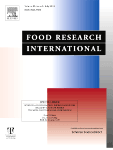
FOOD RESEARCH INTERNATIONAL
Driving Excellence in Food ResearchFOOD RESEARCH INTERNATIONAL is a premier academic journal published by ELSEVIER, specializing in the field of Food Science. With an impressive impact factor and ranked Q1 in the 2023 category quartiles, it stands at the forefront of research, positioned 17th out of 389 in the Scopus ranking for Agricultural and Biological Sciences, attaining a commendable 95th percentile. The journal publishes high-quality, peer-reviewed articles that cover a broad spectrum of topics, including food safety, quality control, nutrition, and biotechnology, making it an invaluable resource for academics, industry professionals, and students alike. As FOOD RESEARCH INTERNATIONAL seeks to enhance understanding and advance technologies related to food, it encourages innovative perspectives and interdisciplinary research. The journal, active from 1992 and continuing through 2024, is an essential platform for disseminating vital findings and fostering collaboration within the global food science community.

Current Research in Nutrition and Food Science
Exploring the intersection of nutrition and science.Current Research in Nutrition and Food Science is a premier academic journal dedicated to advancing knowledge in the fields of nutrition and food science. Published by ENVIRO RESEARCH PUBLISHERS, this journal serves as a critical platform for researchers, professionals, and students to disseminate impactful research findings. With its Q3 ranking in both Food Science and Medicine (miscellaneous) categories for 2023, it reflects its commitment to quality and relevance within these disciplines. The journal operates under an open access model, ensuring that its content is readily available to a global audience, thus promoting collaboration and innovation across various sectors. Covering a wide range of topics from agricultural practices to the biochemical aspects of nutrition, Current Research in Nutrition and Food Science invites contributions that push the boundaries of understanding, addressing contemporary challenges in food safety, dietary health, and nutrition policies. As it continues its journey from 2013 to 2024 and beyond, the journal occupies an essential role in fostering a dialogue among scholars and practitioners, supporting the advancement of science and, ultimately, healthier global communities.
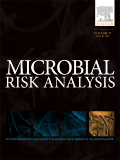
Microbial Risk Analysis
Connecting Scholars to Combat Microbial ThreatsMicrobial Risk Analysis, published by Elsevier, is a pivotal academic journal specializing in the intersection of epidemiology, infectious diseases, and medical microbiology. With an ISSN of 2352-3522 and an E-ISSN of 2352-3530, this journal has been contributing to the field since its inception in 2016 and continues to invite groundbreaking research as it converges through 2024. With a respectable impact factor, Microbial Risk Analysis holds a Q3 designation in key categories, showcasing its credibility with ranks such as #48 in Epidemiology and #124 in Infectious Diseases according to Scopus. The journal serves as an essential platform for researchers, professionals, and students alike, aiming to enhance understanding of microbial risks and their public health implications. Although it operates under a subscription model, its contents remain accessible to a broad range of interdisciplinary scholars dedicated to advancing microbial research. For those at the forefront of epidemiological and infectious disease studies, Microbial Risk Analysis represents a crucial resource for disseminating knowledge and fostering collaboration.